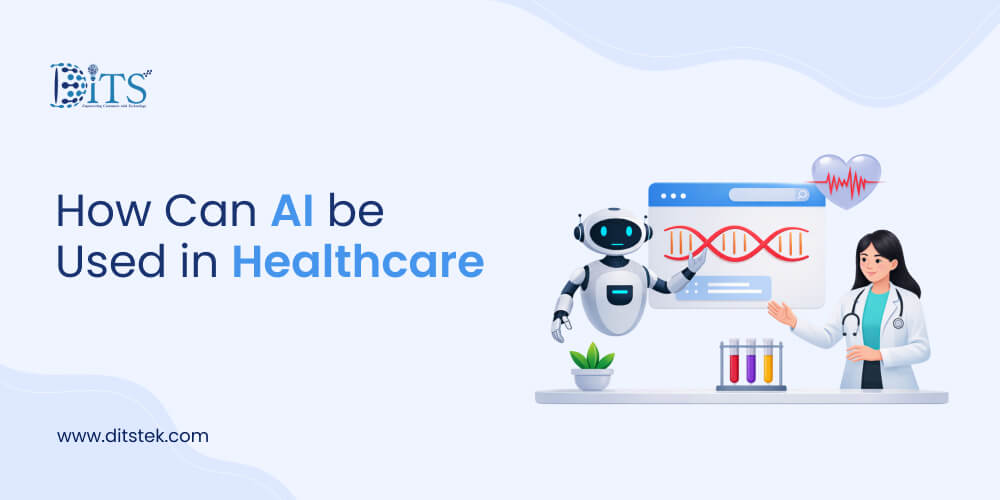Why You Need Healthcare Revenue Cycle Management Software
Table Of Content
Published Date :
18 Jul 2025
Revenue Cycle Management is critical for healthcare businesses as it has a direct impact on patient care, operational efficiency, and financial stability. It encompasses all the economic processes, starting from patient registration to the final payment of all bills during the treatment process. Also, optimizing these processes is crucial for healthcare service providers to thrive in a competitive environment.
The absence of healthcare revenue cycle management software may lead to significant financial and operational inefficiencies. These inefficiencies include more healthcare claim denials, delayed payments, compliance issues, and dissatisfied patients. The result is lost revenue, increased administrative costs, and potential damage to the organization’s reputation.
This blog highlights the key challenges that healthcare providers face without an RCM solution in place and explains how purpose-built software solutions can help address them.
Cut Payment Delays and Capture More Revenue - All from One RCM Platform!
We help healthcare providers minimize billing errors and streamline claims, meaning faster reimbursements and healthier cash flow.
Why is Revenue Cycle Management Critical for Healthcare Organizations?

Revenue cycle management (RCM) is the process that healthcare organizations use to manage the billing and collection of revenue, streamlining processes that create inefficiencies to improve the time spent on medical billing and revenue collection. In this process, RCM can enhance revenue by reducing denials and increasing collections. RCM can also improve compliance and have a positive impact on patient satisfaction.
1. Ensure Quick Payments
When healthcare organizations optimize the revenue cycle, it can document and submit claims accurately and on time. This practice helps decrease the time from submitting a claim to receiving payment from an insurance payer. Automating elements where possible, such as coding, billing, and eligibility verification, helps mitigate the risk of cash flow disruptions.
2. Reduce Denials & Increase Revenue
A sound RCM system will identify errors before submission, track trends in denials, and implement a plan to prevent future denials. Fewer denials/underpaid claims lead to better revenue protection, less administrative work, and improved financial management.
3. Decrease Work Efforts & Compliance
A sound RCM system establishes standard workflows within a given department, which can reduce the time spent on manual tasks. In addition to ensuring compliance with standard obligations, RCM also helps organizations comply with healthcare regulations and billing requirements. RCM also offers compliance monitoring and real-time reporting, which can help prevent expensive penalties and maximize preventive solutions.
Top Challenges for Healthcare Businesses without RCM

Healthcare organizations that don’t use an RCM solution face several challenges in their financial operations.
Ineffective Claim Processing and High Denials
Claim denials and rework often arise from manual data entry, missing documentation, and outdated systems, resulting in the organization incurring a cash deficit and overburdening its staff. RCM software automates the validation of claims, captures incomplete or missing data earlier in the process, and can help reduce denials.
Lack of Real-Time Financial View
Inconsistent systems and outdated reporting make it challenging to manage and view the organization's financial performance quickly. The delay often means missed opportunities to generate revenue. New RCM solutions can provide real-time dashboards and analytics to better manage the financial side of operations.
Compliance / Regulatory Pressures
With changing billing codes and healthcare regulations, such as updates to HIPAA or modifications to ICD-10 codes, non-compliance can result in audits and penalties. RCM software can help organizations maintain compliance by offering rules for updates and providing automated compliance checks as part of their workflows.
Delay in Patient Payments and Lack of Communication
Higher deductibles in insurance plans have resulted in more difficulty in collecting patient payments. There is also a limit for communication options. RCM tools can enhance patient engagement by providing digital reminders, self-service billing portals, and more flexible payment options.
Lack of Integration with EHRs and other systems
Lack of integration and disconnected systems lead to redundant data entry, increasing the potential for errors and slowing down the organization. Customized RCM software that integrates with the EHR, CRM platform, and the billing platform increases accuracy and productivity.
Healthcare Revenue Challenges? We Build Software That Knows Your Industry Inside-Out!
With deep knowledge in the healthcare domain, we craft RCM tools that address coding, compliance, and payer rules, all in real-time.
Cost of Ignoring these Challenges for Healthcare Businesses

Here are the types of disadvantages healthcare organizations face without the use of a dedicated RCM solution for their financial operations.
Delayed Reimbursements
Inefficient billing and claim errors slow down payments, straining your organization’s cash flow and hindering day-to-day operations.
Strained Staff and Increased Burnout
Manual processes and constant rework overwhelm administrative teams, resulting in errors, low morale, and high turnover rates.
Decreased Patient Satisfaction and Retention
Billing confusion, lack of transparency, and poor communication can frustrate patients, damaging your reputation and lowering repeat visits.
Cumulative Revenue Leakage
Missed charges, denied claims, and inadequate follow-up practices result in consistent revenue losses that can go unnoticed but accumulate significantly over time.
At DITS, we develop software solutions to enhance your team's potential, ultimately improving your bottom line. Let us collaborate on your path to transitioning and transforming your RCM across your organization.
How RCM Can Help Overcome These Challenges

A robust revenue cycle management solution helps healthcare businesses to overcome the above-mentioned challenges in these ways:
End-to-End Automation of Billing & Coding Workflows
RCM software automates complex, multi-step, and time-consuming processes, including charge capture, coding validation, claim submission, and payment posting. By reducing manual engagement, RCM software expedites virtually every process in the revenue cycle. Automation accelerates payments and minimizes the need for rework.
Built-In Compliance Updates
Healthcare compliance rules and payer regulations are constantly changing. Attempting to avoid non-compliance by tracking this information manually increases the risk of non-compliance. RCM software incorporates compliance features into the program, including a compliance engine that regularly updates to the latest coding guidelines (ICD-10, CPT), flags potential compliance violations, and ensures that the most recent payer guidelines are applied to construct your claims. This means that you have reduced the amount of audit information and the likelihood of fines or penalties.
Integrated Analytics and Forecasting Tools
A comprehensive RCM solution offers dashboards and customizable reports, delivering real-time insights into your organization's financial performance. RCM applications have analytics capabilities that will allow you to monitor KPIs related to claim denial rates, A/R days, collections from patients, and trends in reimbursement mix.
EHR, CRM, and Accounting System Integration
One prominent operational choke point is the inability to integrate billing, clinical, and administrative systems. Custom RCM Software can integrate seamlessly with EHRs, CRMs, and accounting systems, enabling easy data transfer and enhancing cross-disciplinary coordination. The result is a single system that improves your speed and accuracy.
Custom Tailored Modules
Healthcare organizations differ in various aspects, including specialty, size, demographics, and workflow. Off-the-shelf RCM tools will not address all your specific business pain points. Programs designed specifically for you, with custom RCM software, reflect exactly the workflows, features, and automations you want to operate your business model with flexibility and control.
For Clinics, Hospitals, or Labs - One RCM Solution That Adapts to You!
DITS delivers tailored RCM systems that flex for your size, specialty, and billing needs - no templates, no guesswork.
Why Choose DITS for RCM Software Development?

At DITS, we develop custom revenue cycle management software solutions tailored to address your unique operational challenges. Our team is fluent in the complexities of revenue cycle workflows, payer rules, and regulatory landscapes.
Safe & Secure HIPAA Compliant Platforms
All our RCM software solutions are developed to be secure with industry-standard architecture, end-to-end encryption, user access controls, and detailed audit trails. Furthermore, we ensure that our systems comply with HIPAA and other regulatory standards.
On a Modular Cloud Architecture for Future Growth
DITS develops software designed to be modular and interoperable as plug-and-play cloud deployments. Whether you plan to add a new service offering, expand to new locations, or include additional tools to manage your revenue, our platform will grow with your business.
Integration Expert (EHRs, Billing Systems, Patient Portals)
Our dedicated software development team specializes in integrating RCM platforms with EHRs, billing systems, accounting platforms, and patient portals. This allows data to be easily shared, reduces manual data entry, and supports coordinated care and billing operations.
Proven Success Across Clinics, Hospitals, and Diagnostic Centers
From small practices to multi-specialty hospitals, DITS has delivered RCM software tailored to diverse healthcare environments. Our proven track record showcases our ability to adapt to unique challenges and deliver tangible improvements in financial performance and operational efficiency.
Conclusion
Revenue Cycle Management (RCM) plays an integral role in the financial viability of every healthcare organization. However, inefficiencies such as manual workflows, coding errors, insurance verification delays, and system integration issues continue to disrupt revenue flow. These challenges not only reduce profitability but also affect patient satisfaction and compliance. Custom RCM software can easily overcome these challenges. A custom-built RCM system can automate claims submissions, integrate with EHR systems, and track denials in real-time, thereby accelerating reimbursements while lowering costs.
FAQs
1. What is the biggest challenge in revenue cycle management?
The biggest challenge is claim denials due to coding errors, incomplete documentation, or delayed insurance verification, all of which slow down reimbursements.
2. How can I improve my healthcare revenue cycle?
You can improve your revenue cycle by automating billing processes, using real-time insurance verification tools, and integrating your systems through custom RCM software.
3. Can custom healthcare revenue cycle management software reduce claim denials and improve collections?
Yes. Custom RCM software helps reduce denials by validating data, ensuring accurate coding, and enabling faster and cleaner claim submissions, leading to improved collections.
4. Can you build an RCM system that aligns with our existing billing and EHR systems?
Yes, healthcare revenue cycle management software solutions can be designed to seamlessly integrate with your existing EHR, billing, and scheduling platforms, thereby maintaining data integrity and reducing manual entry.
5. How does custom RCM software help reduce claim denials and payment delays?
Custom solutions can automate coding checks, payer rules, and documentation validation, ensuring cleaner claims and quicker reimbursements with fewer back-and-forth.
6. How long does it take to develop and implement a custom RCM solution?
Timelines vary by project complexity, but most custom RCM platforms take 3–6 months for development and rollout, including testing, integrations, and staff onboarding.
7. How much does it cost to build an RCM software solution for my healthcare business?
For small to mid-sized practices, basic RCM tools typically range from $25,000 to $50,000, while advanced solutions for larger healthcare networks, offering automation, analytics, and multi-system integration, can cost from $75,000 to $150,000 or more.

Nidhi Thakur
With more than 19 years of experience - I represent a team of professionals that specializes in the healthcare and business and workflow automation domains. The team consists of experienced full-stack developers supported by senior system analysts who have developed multiple bespoke applications for Healthcare, Business Automation, Retail, IOT, Ed-tech domains for startups and Enterprise Level clients.
Recent Posts

A practical guide explaining how to implement AI in business with responsible governance, secure integration, scalable architecture, and measurable operational impact across industries.

Explore how AI can be used in healthcare to improve diagnostics, automate operations, enhance revenue cycles, and deliver measurable performance outcomes across healthcare organizations.

Building health tech that actually works? Healthcare API integration makes EHR access, FHIR compliance, and real-time syncing possible. Here’s why it’s non-negotiable.